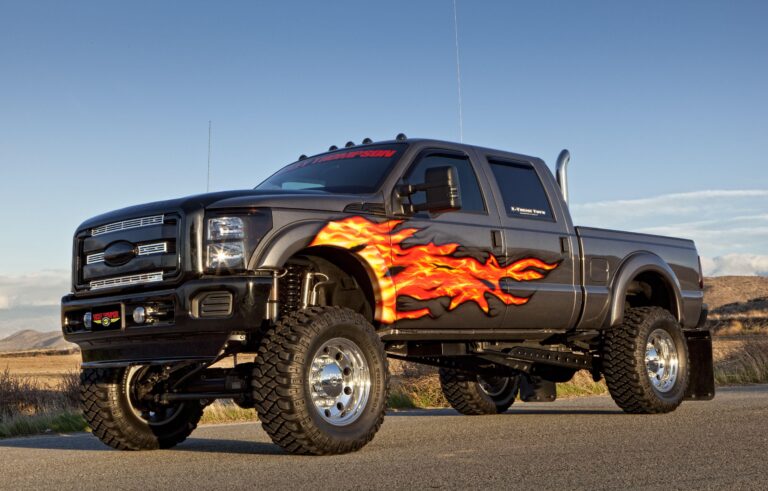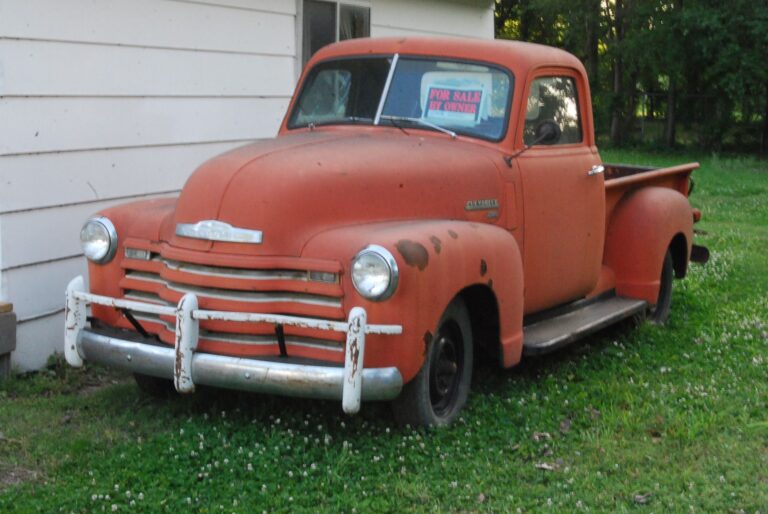Kbb Dump Truck Value: Unearthing the True Worth of Your Heavy Hauler
Kbb Dump Truck Value: Unearthing the True Worth of Your Heavy Hauler cars.truckstrend.com
In the world of automotive sales, "KBB" or Kelley Blue Book is a household name, synonymous with reliable vehicle valuation. It provides a standardized benchmark, helping millions of buyers and sellers determine fair prices for cars, trucks, and SUVs. But what happens when you venture into the realm of heavy equipment – specifically, dump trucks? Does a "KBB Dump Truck Value" exist, and if so, how do you unlock the true worth of these indispensable workhorses?
This comprehensive guide will delve into the intricacies of valuing dump trucks, exploring the methodologies, critical factors, and resources available to accurately assess their market worth. While a direct, single "KBB for dump trucks" website doesn’t exist in the same way it does for consumer vehicles, the concept of a systematic, data-driven valuation is absolutely vital for anyone looking to buy, sell, insure, or finance these powerful machines. Understanding dump truck value is not just about a number; it’s about making informed business decisions that impact profitability and operational efficiency.
Kbb Dump Truck Value: Unearthing the True Worth of Your Heavy Hauler
Understanding the "KBB" Concept for Dump Trucks
For clarity, it’s crucial to understand that Kelley Blue Book primarily focuses on the consumer automotive market. Their extensive database and algorithms are built around factors relevant to cars and light trucks, such as trim levels, popular options, and regional sales data for high-volume models. Heavy equipment, like dump trucks, operates in a different ecosystem. These are specialized commercial assets, often customized, subjected to extreme working conditions, and sold in a far less standardized market.
Therefore, when we talk about "KBB Dump Truck Value," we’re referring to the methodology and principles behind a robust valuation, rather than a single, universal online tool. It involves piecing together information from various industry-specific sources, understanding the unique depreciation factors of heavy machinery, and applying expert judgment. The goal is to arrive at a fair market value (FMV) that reflects the truck’s condition, specifications, and the current economic climate.
Key Factors Influencing Dump Truck Value
Determining a dump truck’s value is a multi-faceted process influenced by a range of critical factors. Each element plays a significant role in shaping its market price:
- Make and Model: Reputable manufacturers like Peterbilt, Kenworth, Freightliner, Mack, Volvo, and Western Star often retain their value better due to their reputation for durability, parts availability, and dealer networks. Specific models known for reliability or specialized capabilities also command higher prices.
- Year of Manufacture: Newer trucks generally fetch higher prices due to lower wear and tear, modern technology, and often, compliance with current emissions standards. However, exceptionally well-maintained older trucks with desirable features can still hold significant value.
- Engine and Transmission: The heart of the truck. The type, horsepower, torque, and brand (e.g., Cummins, Detroit Diesel, PACCAR, Volvo) of the engine, along with the transmission type (manual vs. automatic, number of gears), are crucial. Reliability, fuel efficiency, and maintenance history of these components are paramount.
- Mileage/Hours: Unlike cars where mileage is primary, for heavy equipment like dump trucks, engine hours are often a more accurate indicator of wear and tear, especially for trucks that spend a lot of time idling or working off-road at low speeds. High mileage or hours will naturally depress value, but consistent maintenance can mitigate this.
- Condition (Physical & Mechanical): This is perhaps the most significant subjective factor.

- Physical: Exterior appearance (rust, dents, paint condition), tire wear, frame integrity, bed condition (liner, dents, cracks), cab interior (seats, dashboard, electronics).
- Mechanical: Engine health (leaks, smoke, unusual noises), transmission shifting, hydraulic system functionality (for the dump bed), brake system, suspension, electrical system, PTO (Power Take-Off) functionality. A pre-purchase inspection by a qualified mechanic is highly recommended.
- Maintenance History: Comprehensive and well-documented maintenance records add substantial value. They demonstrate responsible ownership and provide assurance that the truck has been properly cared for, reducing the risk of unexpected breakdowns.
- Specifications and Features:
- Axle Configuration: Tandem, tri-axle, quad-axle configurations significantly impact capacity and therefore value.
- Bed Material & Capacity: Steel beds are common, but aluminum beds offer weight savings. Bed capacity (e.g., 15-yard, 20-yard) dictates the load size.
- Specialized Features: Lift axles, heated beds, tarp systems, high-lift gates, specific body types (e.g., half-round, square body) can increase value based on their utility.
- PTO (Power Take-Off): Essential for operating the dump mechanism.
- Regional Market Demand: The value of a dump truck can fluctuate based on local economic conditions, the level of construction activity, infrastructure projects, and the availability of similar trucks in the region. A boom in construction will drive prices up.
- Economic Conditions: Broader economic factors like interest rates, fuel prices, and material costs can influence the overall demand and pricing for heavy equipment.
- Emissions Standards: Compliance with current environmental regulations (e.g., EPA 2010, EPA 2017, CARB) is increasingly important. Older trucks that don’t meet modern standards may require costly retrofits or face restrictions, impacting their value.


How to Determine Dump Truck Value (The "KBB Equivalent" Process)
Since there isn’t a single website, assessing dump truck value requires a more hands-on, multi-source approach:
-
Research Industry Guides and Auction Results:
- EquipmentWatch: This is one of the leading data providers for heavy equipment values. They offer subscription-based services with extensive pricing data, depreciation curves, and market trends for various types of machinery, including dump trucks.
- Ritchie Bros. Auctioneers / IronPlanet: Reviewing past auction results from major heavy equipment auction houses provides real-world transaction prices. This is an excellent indicator of what buyers are actually willing to pay.
- MachineryTrader / TruckPaper: These online marketplaces list thousands of new and used dump trucks for sale. By comparing similar makes, models, years, and specifications, you can get a good sense of asking prices. Remember, asking prices are often negotiable.
- My Little Salesman / Truck & Equipment Post: Other specialized publications and online platforms for heavy equipment sales.
-
Browse Online Marketplaces:
- Beyond dedicated heavy equipment sites, check broader classifieds and commercial vehicle listings. Filter results meticulously by make, model, year, and key specifications. Pay attention to the asking prices for trucks in similar condition.
-
Consider Professional Appraisal:
- For significant transactions (e.g., large fleet sales, insurance claims, financing, legal disputes), a certified equipment appraiser can provide an unbiased and defensible valuation. They use a combination of market data, physical inspection, and industry expertise.
-
Consult Dealers and Brokers:
- Authorized dealers for brands like Kenworth or Freightliner, as well as independent heavy equipment brokers, have a pulse on the current market. They can offer trade-in values or provide insights into what similar trucks are selling for in your area.
-
Factor in Condition and Maintenance:
- Be brutally honest about your truck’s condition. A detailed inspection checklist should cover every aspect, from the engine and transmission to the tires, frame, hydraulics, and interior. Document any defects, rust, or needed repairs. Highlighting a complete maintenance log will significantly boost perceived value.
-
Calculate Depreciation:
- Heavy equipment depreciates. While there’s no fixed rule, understanding common depreciation methods (e.g., straight-line depreciation) can help. Dump trucks can lose 15-25% of their value in the first year, and then a slower but steady percentage each subsequent year, heavily influenced by hours of operation and maintenance.
Benefits of Knowing Your Dump Truck’s Value
Accurately assessing a dump truck’s value offers numerous advantages for owners, operators, and businesses:
- Informed Buying Decisions: Avoid overpaying by understanding the fair market value for the specifications and condition you’re seeking.
- Fair Selling Price: Price your truck competitively to attract buyers while ensuring you get a fair return on your investment.
- Accurate Insurance Valuation: Ensure your truck is adequately insured, preventing under-insuring (and risking financial loss) or over-insuring (and paying excessive premiums).
- Better Negotiation Power: Whether buying or selling, knowing the value empowers you to negotiate effectively.
- Fleet Management and Asset Tracking: For businesses with multiple trucks, accurate valuations are crucial for balance sheets, asset management, and determining replacement cycles.
- Financing and Collateral Assessment: Lenders will require an accurate valuation when a dump truck is used as collateral for a loan.
Challenges and Solutions
Valuing dump trucks comes with its unique set of challenges:
- Lack of Centralized Database: Unlike cars, there’s no single "go-to" website.
- Solution: Utilize multiple sources (auction data, online marketplaces, industry guides like EquipmentWatch) to triangulate a value.
- Subjectivity of Condition: What one person considers "good" condition, another might see as "fair."
- Solution: Get professional inspections. Use detailed checklists and provide high-quality photos/videos. Be transparent about any known issues.
- Rapid Depreciation: Heavy equipment can depreciate quickly, especially in the first few years.
- Solution: Factor depreciation into your business model and financial planning. Understand that operating hours are often more critical than mileage for wear.
- Market Volatility: Demand for dump trucks can fluctuate with economic cycles and construction activity.
- Solution: Stay informed about industry trends and local market conditions. Be prepared to adjust your pricing expectations.
- Specialized Configurations: Highly customized trucks can be harder to compare directly.
- Solution: Focus on valuing the core components (chassis, engine, transmission) and then adding value for specialized, desirable features. Highlight the unique capabilities these features offer.
Practical Advice and Actionable Insights
- Maintain Meticulous Records: Keep every service record, repair bill, and modification detail. This documentation is gold when it comes to proving your truck’s value and condition.
- Invest in Regular Maintenance: Preventative maintenance not only keeps your truck running efficiently but also significantly slows depreciation. A well-cared-for truck is always worth more.
- Know Your Truck’s Specs Inside Out: Be able to rattle off engine size, horsepower, transmission type, axle configuration, bed material, capacity, and any special features. Buyers want details.
- Clean and Detail Before Selling: A well-presented truck, inside and out, creates a strong first impression and suggests it has been well-cared for. Address minor cosmetic issues.
- Be Realistic About Condition: Don’t inflate your truck’s condition. Buyers will likely get an inspection, and honesty builds trust.
- Consider "As-Is" vs. Repairs: Sometimes, selling a truck "as-is" with known issues at a lower price is better than investing in costly repairs that you might not recoup in the sale price. Get quotes for major repairs before deciding.
Table Price: Illustrative KBB Dump Truck Value Estimates
It’s important to reiterate that this table provides illustrative estimated value ranges only. Actual values will vary significantly based on the exact condition, location, specific features, and current market demand. This is not a definitive "KBB for dump trucks" but rather an example of how values are influenced by various factors.
| Make/Model | Year | Engine/HP | Miles/Hours (approx.) | Condition (Rating) | Estimated Value Range ($) | Key Differentiating Factors |
|---|---|---|---|---|---|---|
| Freightliner M2 | 2015 | Cummins ISL 330 HP | 180,000 mi / 10,000 hrs | Fair | $35,000 – $50,000 | Steel bed, tandem axle, visible rust, some mechanical issues. |
| Kenworth T800 | 2018 | PACCAR MX-13 455 HP | 120,000 mi / 7,500 hrs | Good | $75,000 – $100,000 | Tandem axle, aluminum bed, good tires, minor wear, well-maintained. |
| Mack Granite GR64F | 2020 | Mack MP8 445 HP | 70,000 mi / 4,000 hrs | Excellent | $120,000 – $150,000+ | Tri-axle, heated steel bed, low hours, full maintenance records. |
| Volvo VHD | 2017 | Volvo D13 425 HP | 150,000 mi / 9,000 hrs | Good | $60,000 – $85,000 | Tandem axle, automated manual transmission, some cosmetic flaws. |
| Peterbilt 389 | 2019 | Cummins X15 500 HP | 90,000 mi / 5,500 hrs | Excellent | $110,000 – $140,000 | Tri-axle, polished aluminum, premium interior, low hours, custom specs. |
Note: "Condition Rating" is subjective; professional inspections provide objective data. Values assume no major accidents or salvage titles.
Frequently Asked Questions (FAQ)
Q1: Is there a specific "KBB" website or tool for dump trucks?
A1: No, not in the same way as for passenger vehicles. For dump trucks, you’ll need to use industry-specific resources like EquipmentWatch, auction results from Ritchie Bros., and online marketplaces like MachineryTrader or TruckPaper to determine value.
Q2: How much does a dump truck depreciate per year?
A2: Depreciation varies widely based on usage, maintenance, and market conditions. Generally, dump trucks can lose 15-25% of their value in the first year, and then a slower rate (e.g., 5-10% annually) in subsequent years. High operating hours accelerate depreciation.
Q3: Does mileage or engine hours matter more for dump trucks?
A3: For heavy equipment like dump trucks, engine hours are often considered a more accurate indicator of wear and tear than mileage, especially if the truck spends significant time idling or operating off-road at low speeds.
Q4: Should I get a professional appraisal for my dump truck?
A4: For major transactions, financing, insurance claims, or legal disputes, a professional appraisal is highly recommended. It provides an unbiased, documented valuation that can hold up in various scenarios.
Q5: What’s the best time to buy or sell a dump truck?
A5: This often correlates with construction seasons. Demand (and thus prices) can be higher in spring and summer when construction projects are in full swing. Conversely, you might find better deals in late fall or winter when demand is lower.
Concluding Summary
While the concept of "KBB Dump Truck Value" doesn’t translate to a single, easily accessible online database, the principles of systematic valuation are paramount in the heavy equipment sector. By diligently researching market data from specialized sources, accurately assessing a truck’s condition and specifications, and understanding the myriad factors influencing its worth, owners and prospective buyers can confidently determine a fair market value. This knowledge is not merely academic; it’s a critical tool for making sound financial decisions, ensuring profitability, and successfully navigating the dynamic world of heavy equipment.




